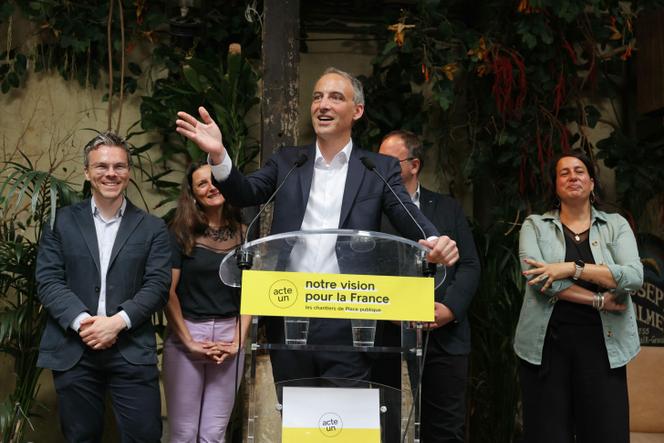


In a trendy café in the 10th arrondissement of Paris, Raphaël Glucksmann tried on Monday, June 23, to answer a major question. "What do we want for France?" he asked, holding up a yellow document – the color of his party, Place Publique – entitled "Our Vision for France." "That's what politics is about: working, working, working on a vision that is turned into a project," he said.
In this 100-page document titled "Act I," the founder of Place Publique outlined his "vision" across 42 policy areas, after nine months of work alongside 3,000 activists and a quiet tour around France, away from the cameras. The clear objective, he said, is "that the pro-European and deeply democratic left should stop being trampled on and stop putting its principles in its pocket," a reference to his left-wing rival, Jean-Luc Mélenchon, from whom he paradoxically draws some inspiration: Years before Glucksmann, Mélenchon, a three-time French presidential candidate, based his movement La France Insoumise (LFI, radical left) on an extensive manifesto titled "L'Avenir en commun" ("A Shared Future"), which he developed and regularly updated with party activists.
You have 80% of this article left to read. The rest is for subscribers only.
